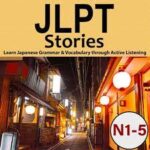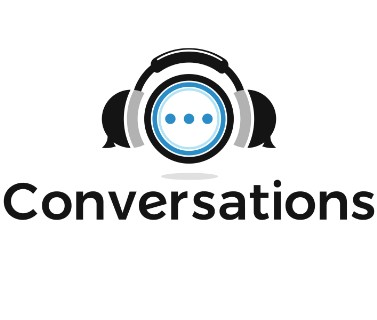
Japanese Podcasts for Learners [2024 Edition]
As a Japanese speaker, I can tell you that the best way to pick up the language is by listening to it.
What better way to listen to the language than with a podcast?
I have listened to my fair share of Japanese podcasts and I am here to share some of my favorites with you.
With these 15 podcasts, you’ll pick up vocabulary, grammar and the rhythm and music of the Japanese language.
Contents
- 1. Best Overall: JapanesePod101
- 2. Best for Beginners: News in Slow Japanese
- 3. Best for Fun: Learn Japanese Pod
- 4. Best for Intermediate Learners: LingQ
- 5. Best for Casual Japanese: The Japanese Page
- 6. Best for Quick Lessons: NHK World
- 7. Best for Advanced Learners: Japanese Listening Advanced
- 8. Best for Studying for the JLPT: JLPT Stories
- 9. Best for Building a Study Habit: Tofugu
- 10. Best for Japanese Dialogue: Japanese Conversations
- 11. Best for Advancing Japanese Levels: Let’s Talk in Japanese
- 12. Best for Learning with Japanese News: Bilingual News
- 13. Best Native Podcast: Hiiki Biiki
- 14. Best for Speaking Practice: Japanese Swotter
- Bonus: FluentU
- The Benefits of Listening to Japanese Podcasts
Download: This blog post is available as a convenient and portable PDF that you can take anywhere. Click here to get a copy. (Download)
1. Best Overall: JapanesePod101
JapanesePod101 is one of the best podcasts for learning Japanese from native speakers.
There are audio and video lessons for the beginner, intermediate and advanced language learner that cover a wide range of topics.
One of the many great features of JapanesePod101 is that the pronunciation is so clear and distinct, allowing for every syllable to be heard.
The host covers language and conversation essentials plus occasional tidbits of Japanese lifestyle which helps keep the lessons interesting.
Read our full review of JapanesePod101.
2. Best for Beginners: News in Slow Japanese
This resource features a different news topic every week that is read out in clear Japanese.
This is a wonderful way to hone your listening and comprehension skills.
If you need more of a challenge, you can listen to a faster version of each slow news story.
Among the site’s eclectic mix of categories are movies, manga, good news, culture, humor, internet and sports.
The audio is accompanied by popup translations and readings of the kanji.
3. Best for Fun: Learn Japanese Pod
This one is a good choice for the beginner who needs to master useful Japanese phrases and vocabulary.
The podcast features a handful of short conversations between the two friends that created the podcast.
They’re designed to illustrate how certain words and phrases are used.
Each conversation is then dissected in English and backed up by supporting materials, including transcripts of the conversations in Japanese and English.
4. Best for Intermediate Learners: LingQ
LingQ features lots of different formats and topics of everyday interest.
LingQ’s podcasts include interviews, features and audiobook excerpts, although most of the lessons are conversations in real Japanese.
Topics include current affairs, education, food, drink and more.
There are also transcripts for free, but you can pay for a membership for features like flashcards, vocabulary lists, progress trackers and neat web browser extensions.
Read our full LingQ review.
5. Best for Casual Japanese: The Japanese Page
The Japanese Page aims to get you away from textbook Japanese and get you to have real conversations.
The mini podcast lessons feature short conversations in Japanese, which are then explained in English.
Each lesson concludes with a quick recap and episodes are accompanied by English and Japanese texts of key phrases and information.
Although each podcast episode can be listened to in isolation, they do build on each other. Each one starts with a quick review of what was covered in the previous lesson.
6. Best for Quick Lessons: NHK World
 These ten-minute lessons feature English intermixed with Japanese words and phrases and how they’re used in different situations.
These ten-minute lessons feature English intermixed with Japanese words and phrases and how they’re used in different situations.
The moderate pace of the Japanese is fairly easy to comprehend and the hosts repeat conversations, exploring them in a little more detail.
There’s a strong focus on pronunciation and grammar and there are also interactive elements to check your understanding of the Japanese.
There are 50 lessons in all and among the featured topics are how to ask for things, ordering in a restaurant and words associated with disaster situations.
7. Best for Advanced Learners: Japanese Listening Advanced
This podcast features Japanese natives talking at natural speed, using colloquialisms and the language you’ll hear on the street.
If you’re at an advanced level but not currently in a Japanese-speaking country, then this podcast will keep your language skills alive.
If you find any parts of the conversations too difficult, there are downloadable transcripts in Japanese with English translations.
8. Best for Studying for the JLPT: JLPT Stories 
These episodes feature carefully-formatted Japanese that’s suitable for a certain JLPT level.
The JLPT Stories podcast will help you study and do the best you can on the test. The content isn’t always textbook-type, and many episodes cover realistic and relatable scenarios.
Unfortunately, the original uploader of the series and its accommodating transcripts is now defunct. However, a generous uploader has amassed some of the episodes at the link above.
9. Best for Building a Study Habit: Tofugu
Tofugu is a very popular Japanese culture and language blog that gives tips on how you can improve your study habits.
Whether you’re struggling with proper translation or wondering how to speed up your progress, the Tofugu podcast can offer helpful suggestions to boost your confidence.
The podcast also covers topics related to the Japanese way of life. These are great to listen to if you’re just curious about Japanese customs, or if you’re planning to swing by and take a trip to the country itself.
10. Best for Japanese Dialogue: Japanese Conversations
Tailored for intermediate learners, Japanese Conversations provides audio of Japanese conversations.
You’ll listen to realistic, narrative-based dialogue that spans a variety of situations, and you can follow along with the provided transcripts.
The intermediate level is always a tough stepping stone for learners, and Japanese Conversations is very mindful of that fact.
It doesn’t baby you, as it uses regularly-paced Japanese speech, a variety of accents and commonly-used slang. However, alongside transcripts, English translations are also provided.
Keep in mind that the series isn’t free; it’s only accessible for a price of $197.
11. Best for Advancing Japanese Levels: Let’s Talk in Japanese
The summary of this podcast is, simply put: “A Japanese teacher talks in Japanese.”
You’ll listen to friendly Tomo as he rambles on about a variety of different topics.
Since Tomo is a teacher, he’s aware of what learners need to both practice and challenge their Japanese skills.
He makes it obvious which episodes are for what level learner by including their corresponding JLPT level.
His lower-level content uses slow and steady voiceover with simple vocabulary, while his higher-level content features native-level cadence and lexicon.
The podcast has become a popular pick for learners due to its clear difficulty distinction, so I recommend you check out videos of different levels to see what suits you best.
12. Best for Learning with Japanese News: Bilingual News
Bilingual News allows you to stay up to date with current events and get some language practice at the same time.
Every episode covers a mix of current news topics, discussed by your hosts Michael and Mami.
Michael speaks in English, while Mami speaks primarily in Japanese (but also provides commentary in English).
With this unique format, you can get a serious listening workout as you intently process the Japanese, fall into a lull with the English, then focus seriously once more when Japanese is spoken again.
The podcast is probably best suited for higher-level learners, since the Japanese used is quick and natural and the ping-ponging between Japanese and English makes for an interesting challenge.
13. Best Native Podcast: Hiiki Biiki 
Hiiki Biiki is a casual podcast featuring a designer and voice actress as they discuss all kinds of things that pique their interest.
The dialogue is very free-flowing, so it feels like you’re just sitting in on two people having a nice chat. It’s a good option for when you want to spiff up your conversational Japanese.
But a fair warning: The format of the podcast doesn’t seem to be catered to language learners. The Japanese used is native-level, so the content is best suited for advanced or upper-intermediate students who have a strong grasp of grammar and vocabulary.
However, lower-level learners might find the podcasts useful for honing their ears to the speed and tone of normal Japanese speech.
14. Best for Speaking Practice: Japanese Swotter
Japanese Swotter lets you carefully listen to specific Japanese phrases and expressions that you can then repeat aloud.
The episode format is very direct. The content, which includes Japanese of different formality levels, is suitable for beginner to mid-level learners.
The podcast sometimes covers important grammatical concepts (with example sentences) that you’ll want to review frequently.
The guided nature of Japanese Swotter can make it particularly helpful to those who enjoy a more interactive study session or those who may be prone to zoning out when listening to audio.
If you sign up for a membership to the content creator’s Patreon, you can also get access to Hiragana episode transcripts.
Bonus: FluentU
FluentU isn’t a podcast, but it can help you with your listening skills, which in turn will make it easier for you to listen to Japanese podcasts.
The program is an immersive language learning tool that teaches Japanese through videos such as news clips, TV show scenes, movie trailers and more.
Each video comes with language-expert-vetted interactive subtitles and transcripts in Japanese, furigana and English, multimedia flashcards and a quiz.
FluentU is available to use in browsers, as well as on iOS and Android devices.
The Benefits of Listening to Japanese Podcasts
Podcasts are great for learning! Here are just a few reasons why:
- They’re created by people who are passionate about language learning and committed to giving you the resources and imaginative lessons you need.
- Listening to Japanese podcasts is one of the best ways of improving your Japanese listening skills. This is something that books and flashcards can’t do.
- You can listen to them any time and anywhere—on the long commute home, while you’re jogging around the park or soaping up in the shower. They can even be playing in your ears as you go to sleep at night!
The sooner you start listening to these podcasts, the sooner you can get yourself on the fast track to Japanese fluency.
Download: This blog post is available as a convenient and portable PDF that you can take anywhere. Click here to get a copy. (Download)




